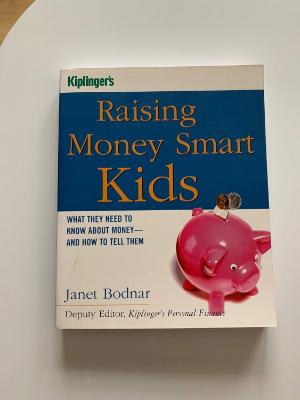
In recent years, some schools have tried to add moral development to their curriculum. But schools have a tough time teaching kids values because they intervene too late, not to mention in too much isolation from the rest of the child’s life. Worse yet, they are often at odds with what the child is learning at home about values.
Because the truth, of course, is that we do teach values to kids, daily, every minute of their lives. The question isn’t whether to teach values, only WHAT we are teaching.
"But how do kids learn values, then?"
The way children learn values, simply put, is by observing what you do, and drawing conclusions about what you think is important in life. Regardless of what you consciously teach them, your children will emerge from childhood with clear views on what their parents really value, and with a well developed value system of their own.
"I've heard that peers are more important in shaping values than parents nowadays."
Of course, parents are not the only source from which children learn values, and peers certainly influence your kids, especially as teenagers. And of course it's healthy for young people to think for themselves and develop their own world view, as much as we may want to influence our children.
But research shows that the stronger your relationship with your child, the more her world -- including the opinions of her peers -- is filtered through the values she's picked up from you. Not to mention that if she has good self-esteem and a warm home life, she is more likely to pick friends who are more in sync with your values.
"We do talk about values with our kids, but I worry about the messages they get in the media, about appearance and money being all important."
TV is an effective teacher. While some TV -- especially public TV -- has many positive social messages for young children, most TV -- especially commercial television with advertising -- teaches values antithetical to what most parents want for their kids. (Click here for more on how TV affects your child). It certainly helps if you don't have another voice in your home spouting antithetical values, and studies show that most commercial TV has a definite negative effect on kids' values around acquisitiveness, sex, violence, race, and gender, no matter what you try to teach them.
TV, schools, religious institutions, peer group, movies, books and other media are all strong teachers regarding values. But no matter how strong those cultural forces, most teenagers still point to their parents as the primary source of their values.
"You're talking about views on things like race and gender being values. I thought values were things like honesty, or being compassionate toward those less fortunate."
Values include both what you hold dear -- such as family, education, democracy, or equal dignity for all people -- and what you think it is important to be -- such as compassionate, hard-working, or honest.
"Ok, so they’re learning values one way or another. How do we teach them consciously?"
Values in most families are never directly discussed. Most of us assume our children will develop values automatically, like magic. Teaching values consciously starts with considering what our values are and finding ways in daily life to discuss -- and live -- our values with our children.
Of course, this is complicated by the obvious fact that what humans say they believe, and what they actually do in practice, are often different. People don’t always act on their values. What your children will do when faced with difficult choices will depend more on who they are, than on what they say they believe.
"So what matters most is who my kid is? What does that mean? We all have good and bad inside us."
True. And acting from the "good" inside us is more likely if anger, anxiety and low self esteem don't get in the way. Kids who are cherished and emotionally attended to are more likely to respond compassionately to others, even from an early age. Which is why parents who prioritize their relationship with their child have an easier time teaching values. Their children have been raised empathically, and they are more likely to treat others kindly.
But that doesn't let us off the hook. We still need to articulate our values to ourselves and then our kids -- not just once, but over and over, applying those values to our daily lives and the dilemmas our child faces.
"The list of my values could be very long!"
True. Values guru Michael Gurian enumerates ten moral competencies that all humans need: decency, fairness, empathy, self sacrifice, responsibility, loyalty, duty, service, honesty, honor.
Martin Seligman, the Happiness expert, says that happiness is a result of developing character strengths that sound a lot like Gurian’s but also include humility, self control, love of learning, industriousness, leadership, caution, and playfulness.
Linda and Richard Eyre, Mormon parenting experts, add to the list courage, peaceability, self-reliance, dependability, chastity, respect, love, unselfishness, and mercy.
Regardless of your own personal list of what you value most, I'm not encouraging you to reel it off to your child. The words won't mean much out of context. But you can help your child to develop the values you want him to have. Here's how.
1. Make it relevant to his world.
Values seem almost theoretical until kids start talking about their own lives -- which, believe it or not, are chock full of values-laden decisions.
- Is your 6 year old allowed to break a date with a friend to accept another, much more exciting, invitation?
- How much help should your 8 year old accept from you on her school project?
- Should your 10 year old leave the neighborhood soccer team halfway through the season when he's recruited to join a more professional team -- even though he's the best player and his exit will definitely leave his team hurting?
- Should your 12 year old invite a girl to her birthday party who some of the other girls look down on, but whose party she went to?
- Should your 14 year old tell the teacher that some of the kids are cheating on the test?
- Should your 16 year old do volunteer work she doesn't particularly care about because it will look good on her college application?
Handling these decisions is what develops our values. Don't miss the opportunity to help your child grow by supporting her in making conscious decisions.
2. Be aware of what you’re modeling.
It isn’t what you say, it’s what you do. If you tell the kids that soccer is about fun and skills and exercise and teamwork, but your first question is about who won the game, they’ll learn that winning is more important than anything else. If you talk about honesty but lie about their age to get a cheaper ticket into the amusement park, it not only puts your child in an uncomfortable position, they learn that cheating is okay under certain circumstances.
3. Help your child develop empathy.
Empathy is the foundation of compassion, which is the foundation of values. Children don't learn empathy by being told to feel it. The only way kids can learn empathy is by being treated empathically, and by watching you respond to others with compassion and kindness. (Click here to learn more about helping your child develop Empathy)
4. Talk explicitly about your values and why they are important to you.
What IS integrity? What is our obligation to our neighbor? What if that neighbor doesn't look like us? Why is respectful behavior important in a church, synagogue or mosque? Helping children interpret the world is a crucial responsibility of parents.
5. Talk about why you make certain decisions based on your values.
Why are you voting for that candidate? In fact, why are you voting? And after you pull the curtain shut in the voting booth, let her help you vote.
6. Label and reinforce expression of values.
When you see your child demonstrating a value that's important to you, recognize your child for it, as specifically as possible.
- "I noticed how kind you were to Ben when you tried to cheer him up."
- "I really appreciated that you were honest with me about what happened at school."
- "How generous of you to give one of your stuffed animals to Carmen!"
- "You figured out all by yourself how to get the homework assignment you missed. That's what I call resourceful!"
7. Resist lecturing.
My kids tease me that I think every moment is a "teachable moment." Of course, teachable moments only work when children are ready to learn, and most humans experience lectures as alienating. Instead, try asking questions to find out more about the decisions he's making and the thinking behind those decisions -- and share your own views sparingly. He'll probably learn more from the process of articulating his dilemmas and noticing the moral implications of his choices than he would have from a lecture -- and he'll feel more connected to you, too, because you're listening.
8. Model community involvement.
Whether it’s running for the school board or volunteering at your church, your kids need to see that you’re committed to the welfare of the larger community.
Help your child appreciate how the invisible work of others helps each of us daily, and that the more blessings we have in our lives, the more responsibility we have to extend help to others.
9. Volunteer for community service projects as a family
...from coat drives to visiting the local nursing home on Valentine's Day. My children needed my leadership and coaxing to be willing to volunteer at a local soup kitchen with me, but they ended up loving it and wanting to do it again.
10. Encourage your child's initiatives that express budding values.
When she decides to start a “Clean up the Park” club with her kindergarten friends, help her organize it in a way that’s manageable and safe. The world is full of projects that kids have launched to make the world a better place. She has to start somewhere.
11. Confront cultural messages about money.
Responsible use of money is a value that is challenging to teach in this acquisitive culture. You’ll probably need to start by getting clear about your own values around money. Is being a millionaire an appropriate goal in life? When he loses his cell phone should he pay for the new one? Is it okay for your child to spend all her bat mitzvah gift money on herself? Even if your family can afford to pay for college, should he work a summer job to contribute?
12. Use discussion starters.
Choose books to read and movies to watch with your child, with the express goal of building character. Of course, a careful choice is not enough, you also need to have a discussion about what you just read or watched. Does she think the character made the right decision? Why or why not? At the dinner table, come armed with a good question or two to start the ball rolling. (You'll find plenty of great suggestions in 255 Conversation Starters for Family Discussions.) Or share an ethical dilemma you came across today in your own life. They're all around, if you pay attention, from cutting someone off in traffic to sharing gossip.
13. All kids should get an opportunity to contribute their own money to charity.
Many families use a tripartite allowance. The lion's share is their own spending money.
Split the rest in half and put it in two separate containers, one marked "Charity," the other marked "Savings." Savings is to help buy that bike, or to buy a present for her friend, or to help pay for the class trip.
Charity (or Tzedaka, the Jewish equivalent that means restoring Justice), is to be given away to a worthy cause the child chooses. A good time to do this is their birthday, or the holiday season, but anytime is ok. Some kids will be moved by a news report of people in need and will pack off their coins to contribute. You might offer to match their contribution.
14. Consciously teach and model good sportsmanship.
Some people seem to be more competitive than others from birth, but all of us need to be taught how to be good sports. Your help will make it easier for your child to find genuine solace in a game well played, and to mean it when he says “Good game!” to every former opponent, whether he’s lost or won.
15. Communicate faith in being "on the side of the angels".
Our children need to know that doing the right thing is not only the right thing to do, but the satisfying thing to do, deep inside, even when it costs us something -- and what hard moral choice doesn't cost us?
To be the people we want to be, we need to believe things that aren't provably true: that most people are mostly good, that crime doesn't pay, that good conquers evil, that it is better to have loved and lost than never to have loved at all ... You can certainly add to this list.
Every parent will have a different answer to the question most kids get around to asking: "Why does it matter what one person does, if no one ever knows?" My answer is, "The angels need our help."
"To educate a person in mind and not morals is to educate a menace to society." -- Theodore Roosevelt
Books to Support You in Teaching Your Child Values
These are books for adults. For a whole page of books to read to children to teach values, please click here.
PLEASE NOTE: These books are Amazon links with photos of the books. If you are not seeing them on your page, it may be that your browser is not picking them up, or Ad Blocker in Chrome is blocking the Amazon links. You can disable Ad Blocker just for this site if you like. Or you may want to try another browser. Enjoy!








